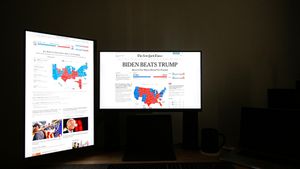The UK's recent decision to impose value-added tax (VAT) on private school fees is stirring up significant concern among parents and educators alike. Starting January 1, 2025, private K-12 school fees and boarding services will be subject to a 20% tax, impacting many families seeking independent education for their children.
Chancellor Rachel Reeves announced on July 29, 2024, the government's plan to eliminate the VAT exemption previously enjoyed by private schools. This change means any fee payments made after July 29, 2024, for terms beginning on or after the new year will incur this tax.
Prior to this announcement, private education services had been exempt from VAT, making them more financially accessible to families. Reeves stressed the rationale behind the move, calling it unjust for wealthy families to enjoy tax exemptions, especially as the government seeks to improve state-funded education.
Indeed, the Labour Party argues this policy could raise around £1.6 billion annually, which they intend to funnel back to the struggling state school system. Critics, including Julie Robinson, Chief Executive of the Independent Schools Council, indicate this sudden financial burden could lead to around 40,000 students leaving private education.
The potential fallout is alarming; with so many children switching to state-funded schools, it could strain already overburdened facilities. Robinson warns of the chaos this could introduce, stating, "Families have made decisions about education months before the election was called; they cannot adequately plan for their children’s futures based on speculation and uncertainty."
Parents particularly fear the impact on military families, who rely on private schooling stability amid frequent relocations. Conservative MP Greg Smith highlighted how disrupting their children’s education with this added financial burden is not only unfair but seems to contradict government support promises for military families.
The government's move to implement VAT sooner than previously expected creates additional worry among private school representatives. Many believe such drastic changes should be phased in gradually to allow families and institutions to adjust.
Some private institutions, like King’s Worcester, have already committed to maintaining their current fee levels through the academic year affected by the new VAT. They aim to manage the changes carefully and assure their community of their dedication to providing quality education.
Surveys conducted among international parents paint the picture of discontent; approximately 60% indicated the tax would influence their decisions about where to educate their children. About 9% noted they might even seek schooling abroad to avoid the looming financial burden.
The troubling trend extends to Islamic schools, particularly vulnerable after the VAT decision. With fewer resources and operating on constricted budgets, many of these schools might face closure, raising alarms among parents seeking culturally sensitive education alternatives.
Historically, private Islamic schools have catered to local communities, providing education reflective of cultural needs. Yet, they may be hit hardest by the new tax, as they typically charge significantly lower fees compared to mainstream private schools.
Of the 2,500 private schools across the UK, the average fee is around £15,200 annually. This figure starkly contrasts with some of the most prestigious institutions, like Eton and Harrow, which can charge near £50,000 yearly.
This new financial structure risks uprooting established educational paths for many families. Greg Smith reiterated the adverse effect of such taxes on aspiration, stating, "It penalises families who strive to provide the best possible education for their children and sends the wrong message about the value of hard work and success."
While the government frames the VAT inclusion as socially responsible, it could unintentionally weaken the network of private education options available. The nuanced dynamics of socio-economic differences underscore why blanket policies can have wide-ranging consequences.
Opposition voices are growing louder, warning of the potential chaos if many private school students are forced to transition to public institutions without significant planning or resources to accommodate them. Damian Hinds, Shadow Secretary of State for Education, cautioned against proceeding without ensuring the state sector is prepared for the influx of new students.
Despite these challenges, some private schools are adopting strategies to cushion the financial impact as they navigate their futures under this new tax regime. The focus remains on maintaining educational quality and ensuring families do not feel the pinch too harshly, at least for now.
Supporters of the VAT measure see it as part of broader efforts to equalize educational support among wealth disparities and provide state schools with much-needed funding. Still, it’s clear the situation warrants careful consideration and broad discussion about the values at stake.
The future of the educational framework within the UK remains uncertain, and the impending changes necessitate continuous conversations between schools, families, and policymakers. How these discussions evolve will be pivotal as both private and state educational sectors brace for the impact of upcoming changes.



